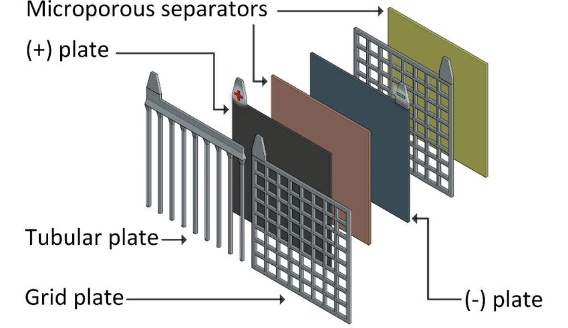
Feb , 24 2023
Ⅰ: Electromotive force, internal resistance and terminal voltage of lead-acid battery: 1): Electromotive force: refers to the potential difference between the two poles, which depends on the relative density and temperature of the electrolyte.The relative density temperature coefficient of lead-acid battery is 0.00075, that is, the relative density decreases by 0.00075 when the electrolyte tempera...
more
